
In this article
Herbal teas, crafted by infusing the roots, stems, flowers, and other plant components in hot water, have been cherished for centuries as natural remedies for a variety of ailments. They are rich in antioxidants and other beneficial plant compounds, potentially aiding in anxiety relief, sleep improvement, and digestion. Despite these potential benefits, certain herbal teas can interact with medications, altering their absorption, metabolism, and excretion. Here’s a closer look at some common herbal teas and their possible interactions with medications.
Ginkgo Biloba Tea
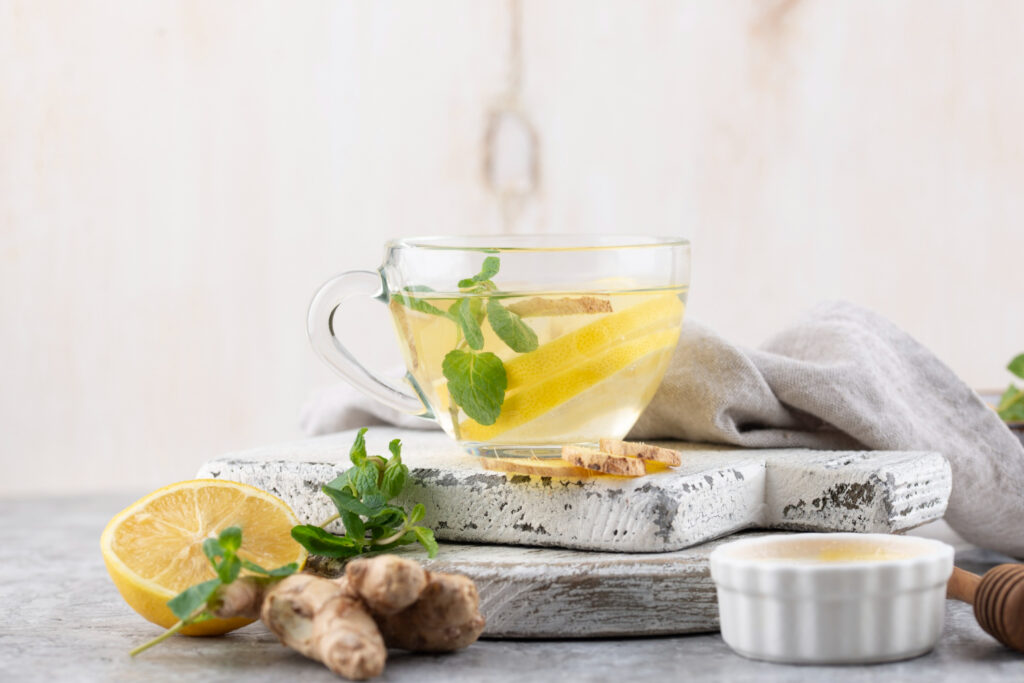
Ginkgo biloba is a popular herbal supplement in the United States, with limited evidence suggesting it may help reduce anxiety, cognitive decline associated with aging, and high blood pressure. However, ginkgo contains compounds that can slow blood clotting. This property makes it risky to consume ginkgo biloba tea if you are also taking blood thinners like warfarin or NSAIDs such as aspirin and ibuprofen, as the combination can increase the risk of bruising and bleeding. Moreover, combining ginkgo with certain antidepressants can raise the risk of serotonin toxicity.
St. John’s Wort Tea
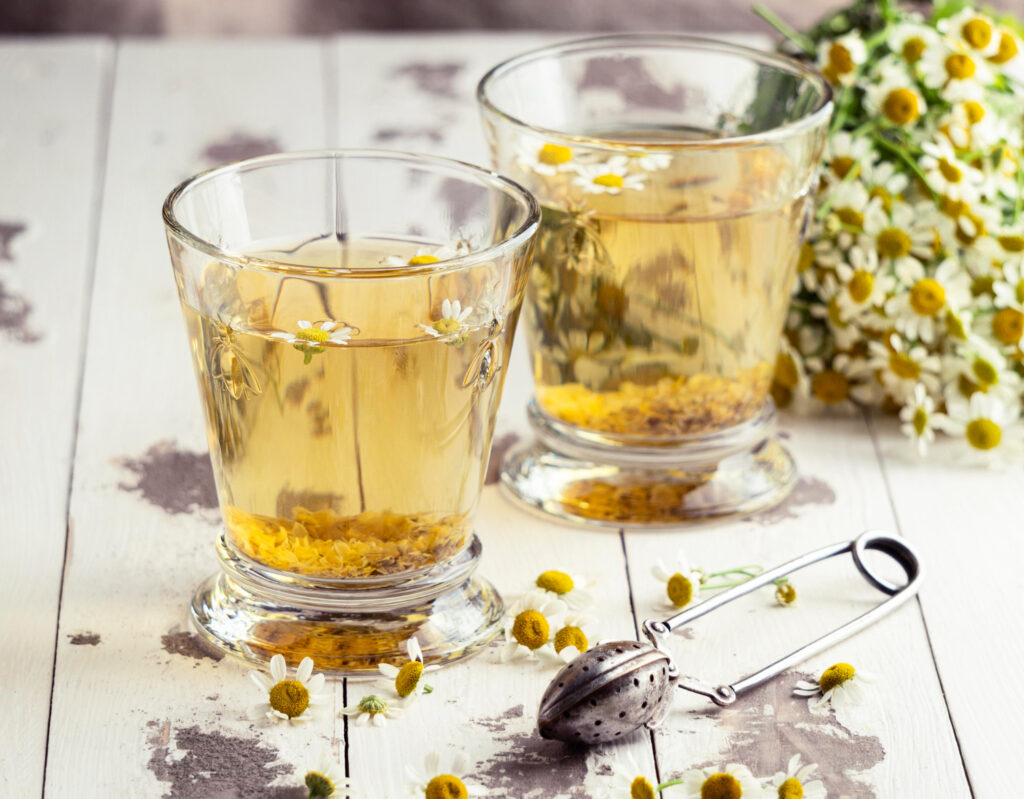
St. John’s Wort (Hypericum perforatum) is a plant known for its potential in treating mild to moderate depression. It is believed to work similarly to selective serotonin reuptake inhibitors (SSRIs) by increasing levels of serotonin, dopamine, and noradrenaline, which are essential for mood regulation. However, when combined with traditional antidepressants, St. John’s Wort can lead to serotonin syndrome, a potentially life-threatening condition caused by excessively high levels of serotonin. Additionally, St. John’s Wort tea can interfere with the effectiveness of various other medications, including birth control pills, HIV medications, cancer treatments, heart condition drugs, pain medications, immunosuppressants, blood thinners, and the allergy medication Allegra (fexofenadine).
Chamomile Tea
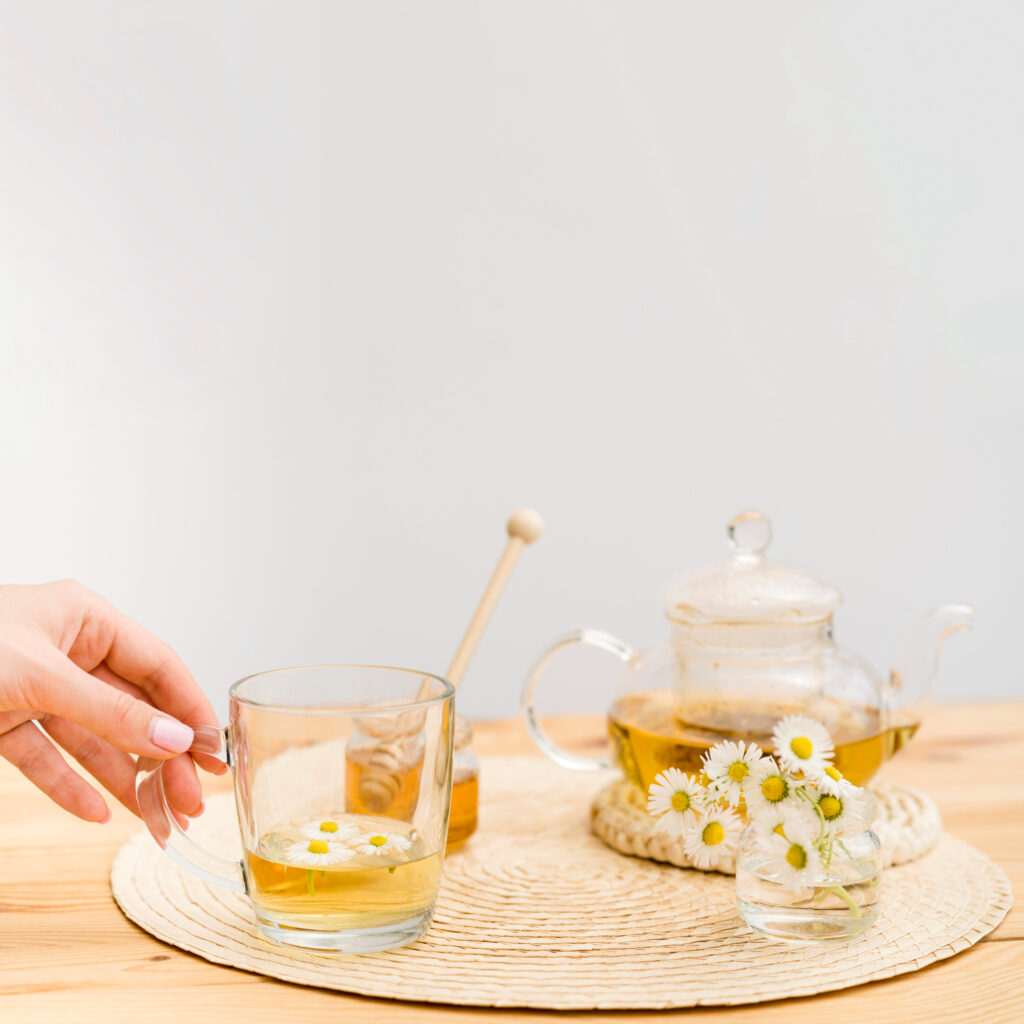
Chamomile tea is commonly used to alleviate anxiety and promote better sleep. While generally safe in typical tea amounts, there have been reports of chamomile interacting with blood thinners like warfarin and cyclosporine, a medication used to prevent organ rejection post-transplant.
Ginger Tea
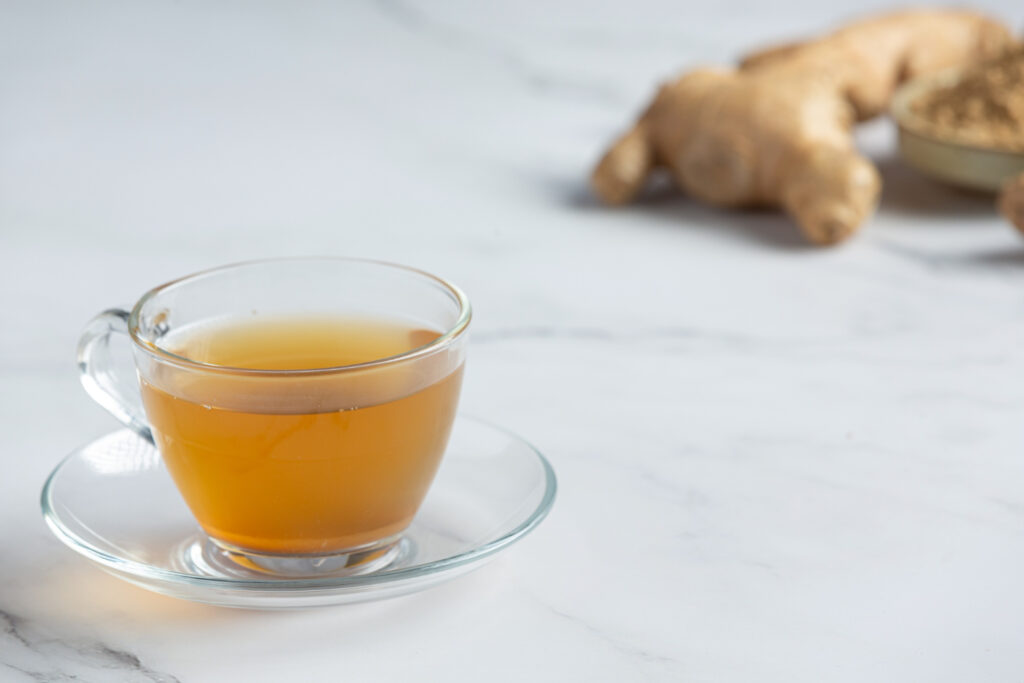
Ginger tea, made by steeping fresh ginger root in water, is often used to treat nausea and vomiting. It may also aid in digestion, menstrual pain, and inflammation, thanks to compounds called gingerols and shogaols. However, like many other herbal teas, ginger tea can increase the risk of bleeding when combined with blood-thinning medications.
Valerian Root Tea
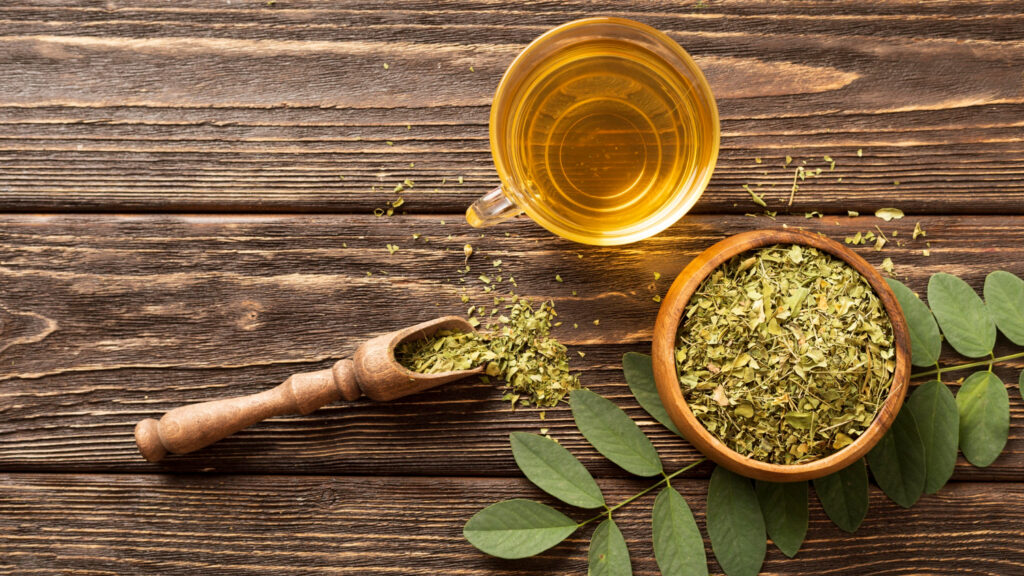
Valerian tea is brewed from the dried roots, stems, and rhizomes of the valerian plant (Valeriana officinalis). Known for its strong, pungent odor, valerian root contains chemical compounds such as valepotriates and sesquiterpenes, which may contribute to its sedative and tranquilizing effects. People often drink valerian root tea to help with sleep, depression, anxiety, and menstrual cramps, though more research is needed to confirm these benefits. Valerian’s sedative effects can enhance the effects of other sedatives and similar medications, including benzodiazepines (e.g., Xanax, Valium, Ativan), barbiturates (e.g., morphine, propofol), and dietary supplements like melatonin and kava.
Goldenseal Tea
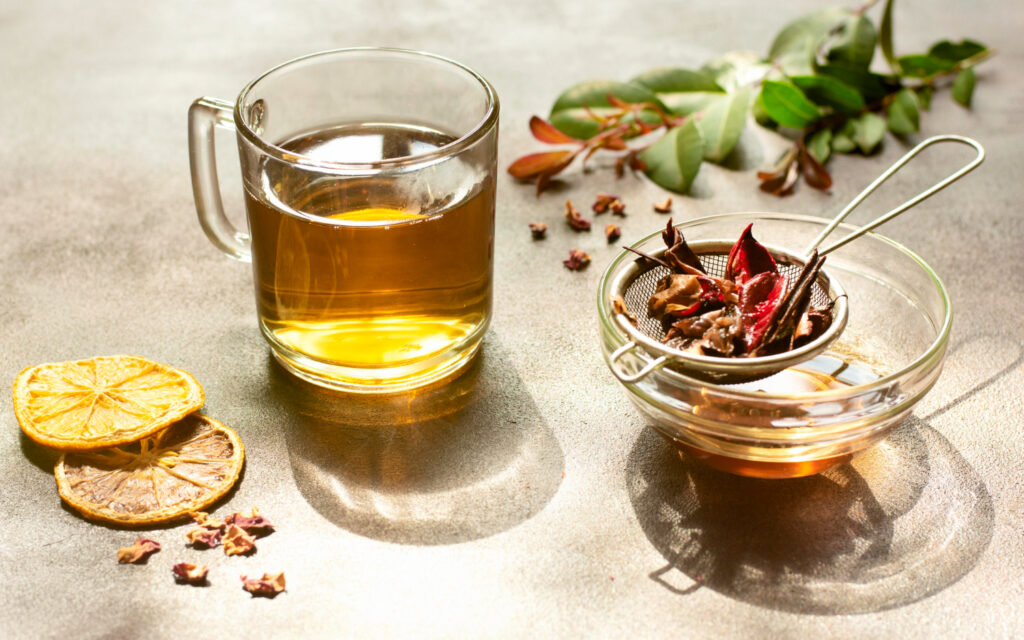
Goldenseal (Hydrastis canadensis) is a perennial herb whose leaves are used to make tea, known for being less bitter than its root. Commonly consumed as a natural remedy for colds, ulcers, respiratory infections, and digestive issues, goldenseal can interact with diabetes medications like metformin. Studies have shown that goldenseal extract can reduce metformin levels by up to 25%, potentially increasing the risk of hyperglycemia (high blood sugar). It’s important to note that goldenseal extract is much more concentrated than the tea form.
The Takeaway
While herbal teas offer numerous health benefits, it’s crucial to be aware of their potential interactions with medications. Always consult with a healthcare provider before adding any herbal teas to your routine, especially if you are on medication. By doing so, you can enjoy the benefits of herbal teas while minimizing the risk of adverse interactions.
By following these guidelines, you can enjoy herbal teas safely while being mindful of their potential effects on your medication regimen
A Quick Review
Herbal teas offer numerous health benefits but can interact with medications, affecting their absorption, metabolism, and excretion. Notable interactions include Ginkgo Biloba with blood thinners, St. John’s Wort with antidepressants and birth control, Chamomile with warfarin, Ginger with blood thinners, Valerian Root with sedatives, and Goldenseal with diabetes medications
FAQS
Can I drink herbal tea if I’m on medication?
It depends on the medication and the herbal tea. Some teas can interact with medications, altering their effectiveness and increasing the risk of side effects.
Which herbal teas are most likely to interact with medications?
Ginkgo Biloba, St. John’s Wort, Chamomile, Ginger, Valerian Root, and Goldenseal are known to interact with various medications.
What should I do before adding herbal teas to my diet?
Consult with your healthcare provider to ensure the herbal teas you wish to consume do not interact negatively with your current medications.











